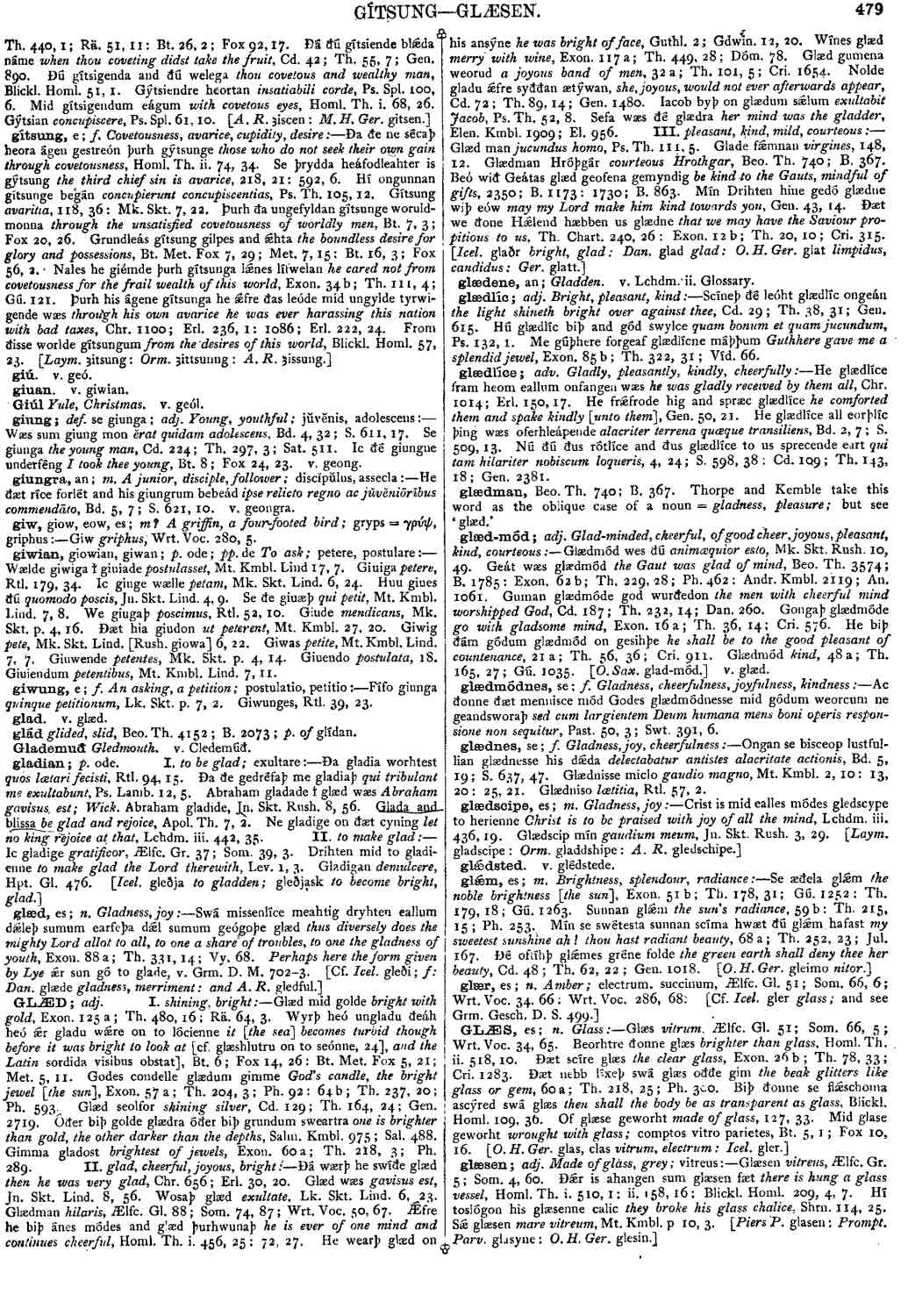gítsung
- noun [ feminine ]
-
Ða ðe ne sécaþ heora ágen gestreón þurh gýtsunge
those who do not seek their own gain through covetousness,
- Homl. Th. ii. 74, 34 .
-
Se þrydda heáfodleahter is gýtsung
the third chief sin is avarice,
- 218, 21 :
- 592, 6 .
-
Hí ongunnan gítsunge begán
concupierunt concupiscentias,
- Ps. Th. 105, 12 .
-
Gítsung
avaritia,
- 118, 36 :
- Mk. Skt, 7, 22 .
-
Þurh ða ungefyldan gítsunge woruldmonna
through the unsatisfied covetousness of worldly men,
- Bt. 7, 3 ;
- Fox 20, 26 .
-
Grundleás gítsung gilpes and ǽhta
the boundless desire for glory and possessions,
- Bt. Met. Fox 7, 29 ;
- Met. 7, 15 :
- Bt. 16, 3 ;
- Fox 56, 2 .
-
Nales he giémde þurh gítsunga lǽnes lífwelan
he cared not from covetousness for the frail wealth of this world,
- Exon. 34 b ;
- Th. 111, 4 ;
- Gú. 121 .
-
Þurh his ágene gítsunga he ǽfre ðas leóde mid ungylde tyrwigende wæs
through his own avarice he was ever harassing this nation with bad taxes,
- Chr. 1100 ;
- Erl. 236, 1 :
- 1086 ;
- Erl. 222, 24 .
-
From ðisse worlde gítsungum
from the desires of this world,
- Blickl. Homl. 57, 23 .
Bosworth, Joseph. “gítsung.” In An Anglo-Saxon Dictionary Online, edited by Thomas Northcote Toller, Christ Sean, and Ondřej Tichy. Prague: Faculty of Arts, Charles University, 2014. https://bosworthtoller.com/17154.
Checked: 1